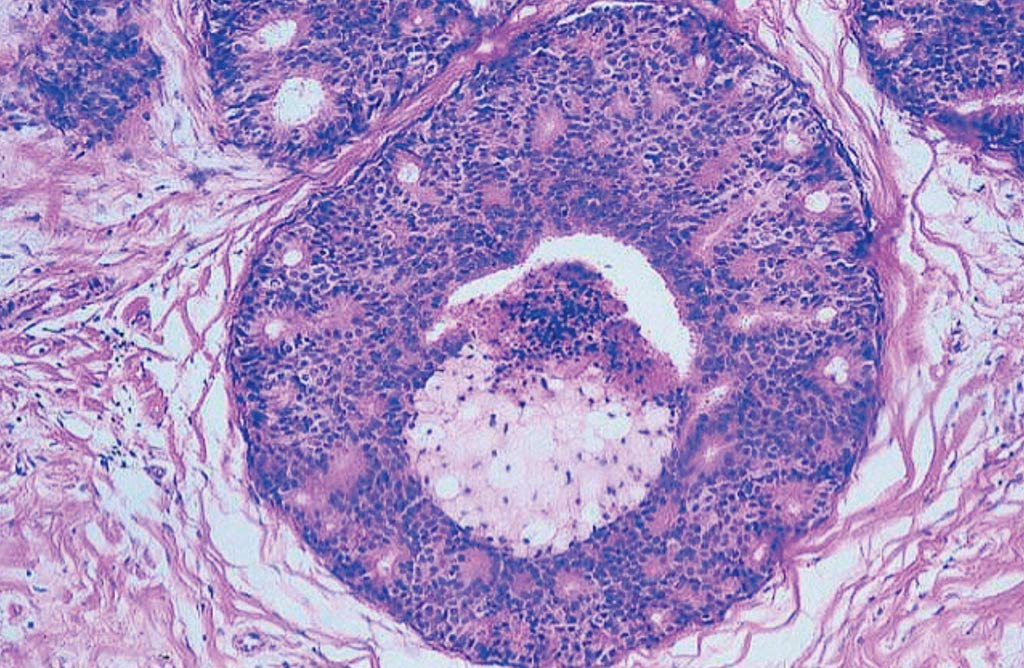Cholesterol Diagnosis Related to Breast Cancer Risk
By LabMedica International staff writers
Posted on 22 Sep 2017
Breast cancer is a malignancy that begins when cells grow abnormally in breast tissue. Although men can also develop breast cancer, it is much more common in women. Among women around the globe, breast cancer is the most common cancer and the fifth most common cause of cancer death. In 2012, nearly 1.7 million new cases, a quarter of all new cancer cases in women, were diagnosed worldwide.Posted on 22 Sep 2017
All animal cells need cholesterol to function normally and it is an essential component of cell walls. Cholesterol is also important for making vitamin D, compounds that aid digestion, and hormones. The blood transports cholesterol around the body inside lipoproteins, which are droplets of fat covered with protein. However, having too much cholesterol in the blood is a well-established risk factor for cardiovascular conditions.

Image: Histopathology of breast cancer: intraductal carcinoma, comedo type, with distended duct with intact basement membrane and central tumor necrosis (Photo courtesy of Peter Abdelmessieh, DO, MSc).
Scientists at Aston University (Birmingham, UK) collected information from over one million patients attending several hospitals in the North West of England between 2000 and 2013. They searched records from female participants aged 40 and over who were and were not diagnosed with high cholesterol at baseline (the start of the study period) and did not have breast cancer at that point. For their analysis, the team included 16,043 women who were diagnosed with high cholesterol and an age-matched group of the same number of women without high cholesterol for comparison. The average age of the women was 66 years.
The investigators found a lower proportion of the high-cholesterol group developed breast cancer, compared with the group that did not receive such a diagnosis at baseline (0.5% compared with 0.8%). Further analysis revealed significantly lower odds of breast cancer in the high-cholesterol patients (odds ratio of 0.67), compared with the patients who had not received such a diagnosis. The group that had been diagnosed with high cholesterol at baseline also had lower rates of death compared with the group that had not (13.8% compared with 23.7%). After taking into account age, ethnicity, and other factors known to influence premature death, the team found that the high-cholesterol group had significantly lower odds of death (odds ratio 0.60).
The team concluded that their large, longitudinal, retrospective study shows that diagnosis of high cholesterol has a highly protective effect on the subsequent development of breast cancer. Rahul Potluri, MD, a clinical scientist and the senior author of the study said, “If a diagnosis of high cholesterol leads to lower breast cancer rates this must either relate to something inherent in the condition or affected patients, or more likely, to treatment with widely used cholesterol lowering interventions such as statins.” The study was presented at the European Society of Cardiology ESC Congress, held August 26-30, 2017, in Barcelona, Spain.
Related Links:
Aston University














